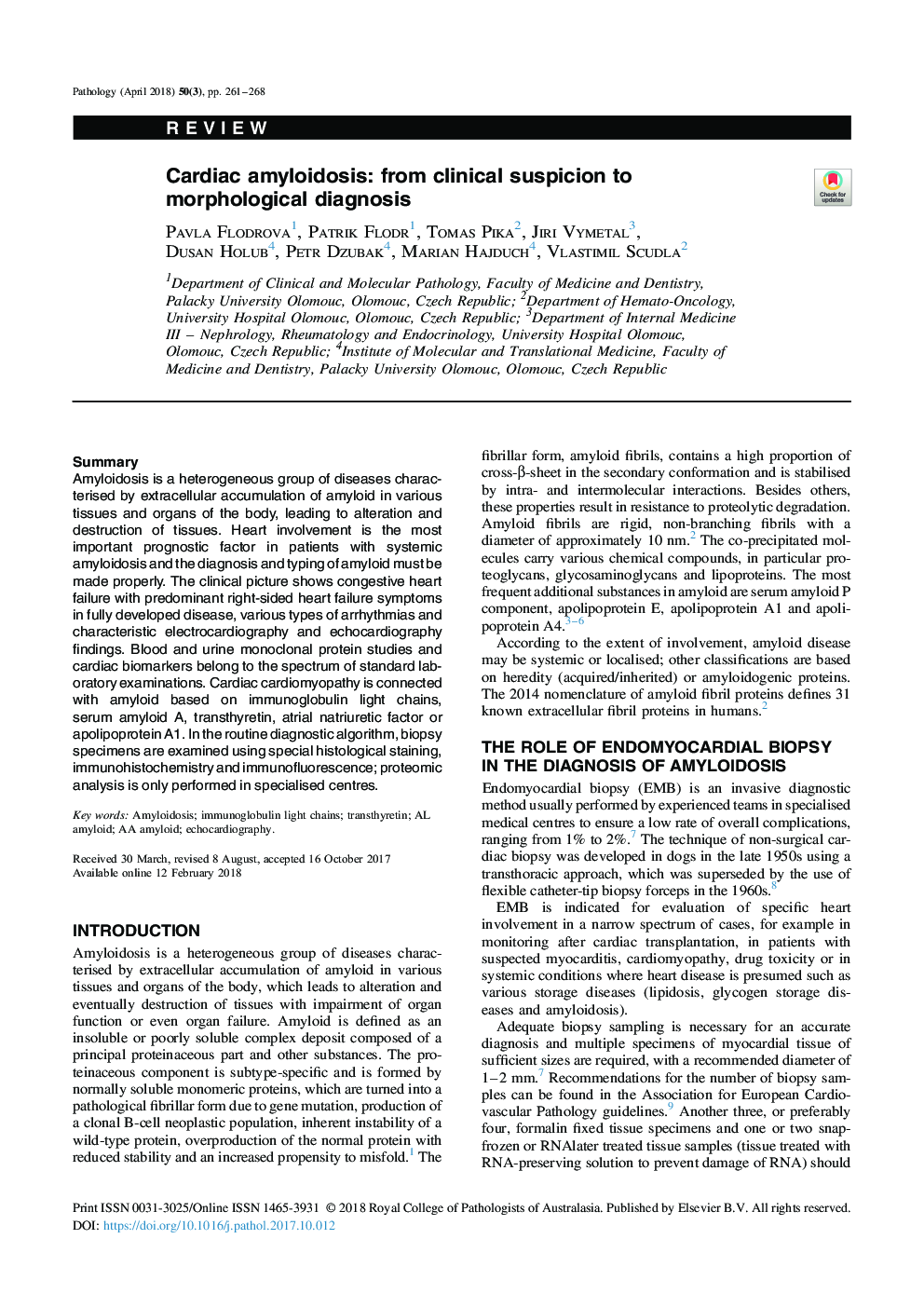| Article ID | Journal | Published Year | Pages | File Type |
|---|---|---|---|---|
| 6555505 | Pathology | 2018 | 8 Pages |
Abstract
Amyloidosis is a heterogeneous group of diseases characterised by extracellular accumulation of amyloid in various tissues and organs of the body, leading to alteration and destruction of tissues. Heart involvement is the most important prognostic factor in patients with systemic amyloidosis and the diagnosis and typing of amyloid must be made properly. The clinical picture shows congestive heart failure with predominant right-sided heart failure symptoms in fully developed disease, various types of arrhythmias and characteristic electrocardiography and echocardiography findings. Blood and urine monoclonal protein studies and cardiac biomarkers belong to the spectrum of standard laboratory examinations. Cardiac cardiomyopathy is connected with amyloid based on immunoglobulin light chains, serum amyloid A, transthyretin, atrial natriuretic factor or apolipoprotein A1. In the routine diagnostic algorithm, biopsy specimens are examined using special histological staining, immunohistochemistry and immunofluorescence; proteomic analysis is only performed in specialised centres.
Related Topics
Health Sciences
Medicine and Dentistry
Forensic Medicine
Authors
Pavla Flodrova, Patrik Flodr, Tomas Pika, Jiri Vymetal, Dusan Holub, Petr Dzubak, Marian Hajduch, Vlastimil Scudla,
